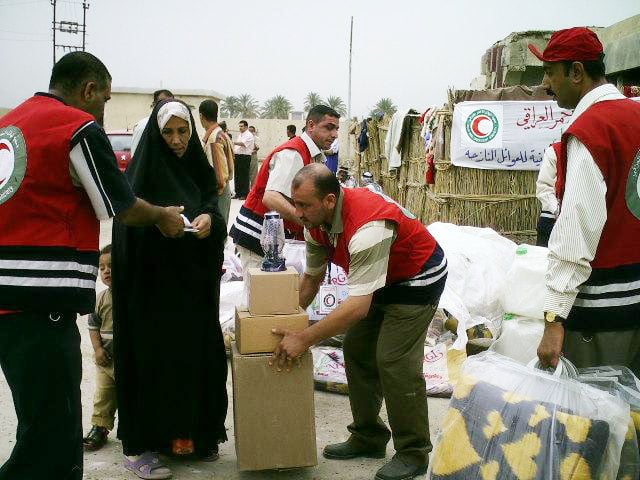While the rate of people fleeing their homes in Iraq has decreased during the first half of 2008, daily life for the thousands of internally displaced persons (IDPs) living in tent camps remains grim, the International Organization for Migration (IOM) said in an assessment issued on 15 August.
"Tent camp residents have little or no access to basic services, cannot protect themselves against the elements or extreme weather, and are located far away from medical care, education and other services," the IOM statement said. "These harsh conditions, combined with a cultural aversion to living without familial privacy and personal dignity, make tent camps a last resort for Iraqi IDPs."
The assessment, which was carried out in conjunction with Iraq's Ministry for Displacement and Migration and the Iraqi Red Crescent Society, also said that although the number of IDPs living in tent camps remained very low compared to the overall number of IDPs nationwide - some 2.8 million – they were often the most vulnerable and in constant need of humanitarian assistance.
Unbearable camp conditions
IOM, the 125-nation migration body, described the miserable conditions in Iraq’s largest IDP camp, al-Manathira, which is 20km south of Najaf (about 160km south of the capital, Baghdad) and home to 231 families (about 1,400 individuals). It said "families who were evicted from public buildings live in cramped tents and caravans with limited sanitation and drinking water”.
A lack of family privacy - highly valued in Iraqi culture - combined with unemployment and overcrowding has caused "significant tensions" among the inhabitants, it said.
Ali al-Khafaji, a 38-year-old IDP who lives in al-Manathira camp, said high temperatures inside his waxed tent are so unbearable that sometimes his family prefer to sit in the shade outside.
"Our daily life is miserable," al-Khafaji, a father-of-two, told IRIN. "We have only two generators for the whole camp and sometimes we have to wait for days or weeks to get them repaired when they break down."
"Also, every five to 10 tents shares one toilet and that embarrasses families as they can't have privacy and that is why we've dug a pit in one corner of our tent," he added.
In Qalawa camp in the northern province of Sulaymaniyah, IOM said that a group of IDPs who had settled on a piece of open land two years ago still do not have sanitation, electricity or toilets.
They "live surrounded by garbage", the report said. "As a result, cases of typhoid have recently been reported.”
sm/ar/ed
This article was produced by IRIN News while it was part of the United Nations Office for the Coordination of Humanitarian Affairs. Please send queries on copyright or liability to the UN. For more information: https://shop.un.org/rights-permissions





